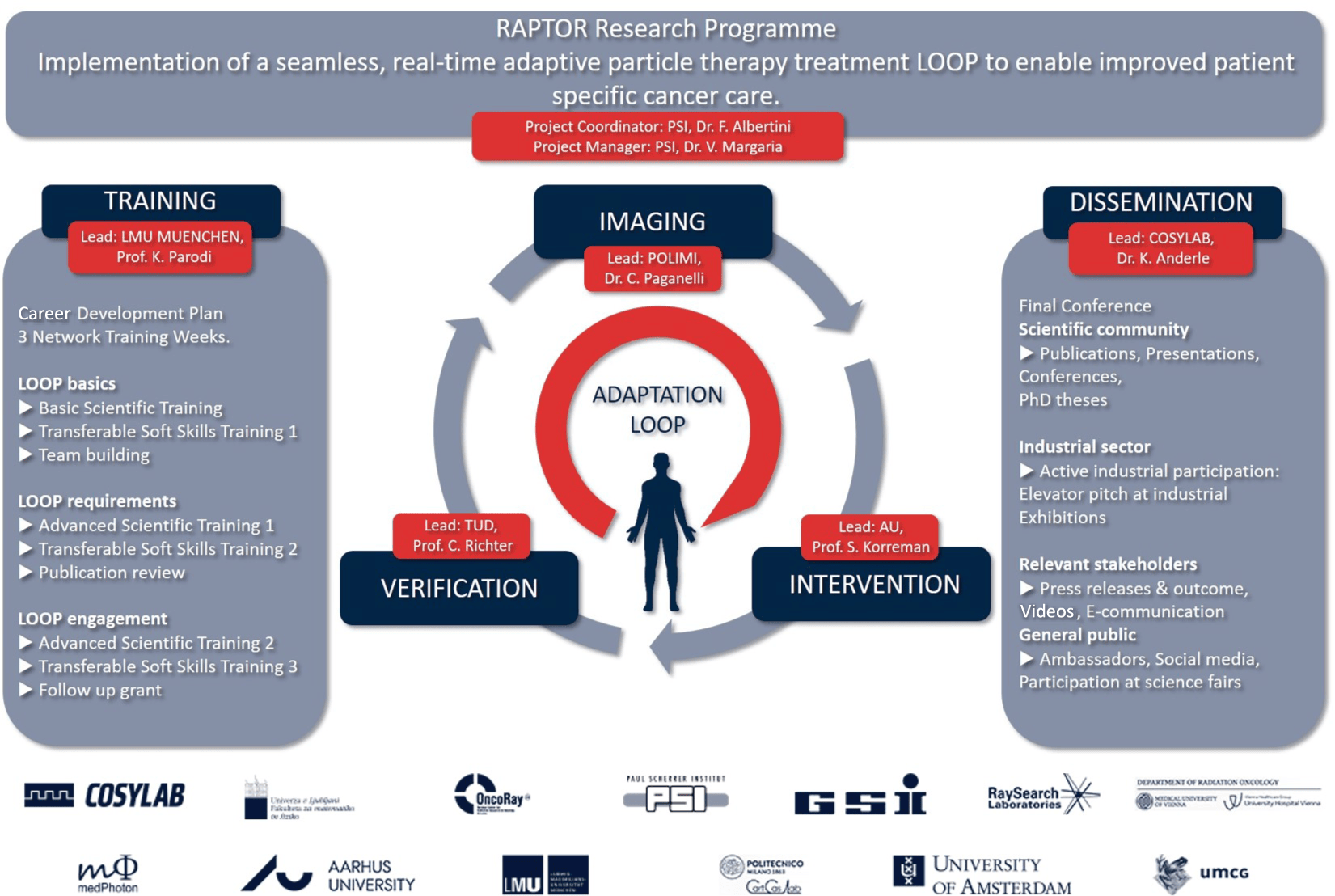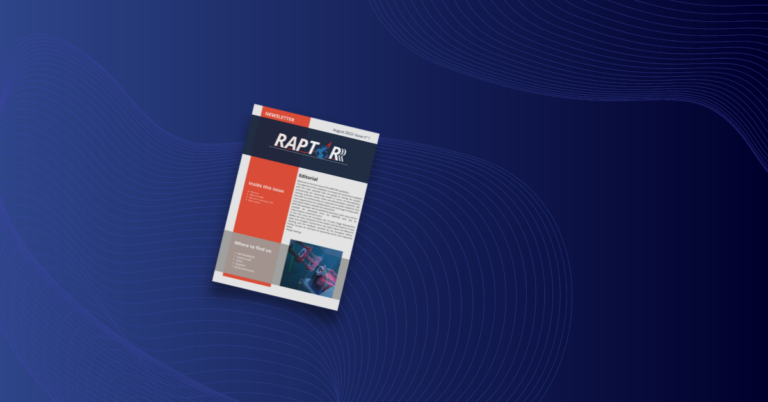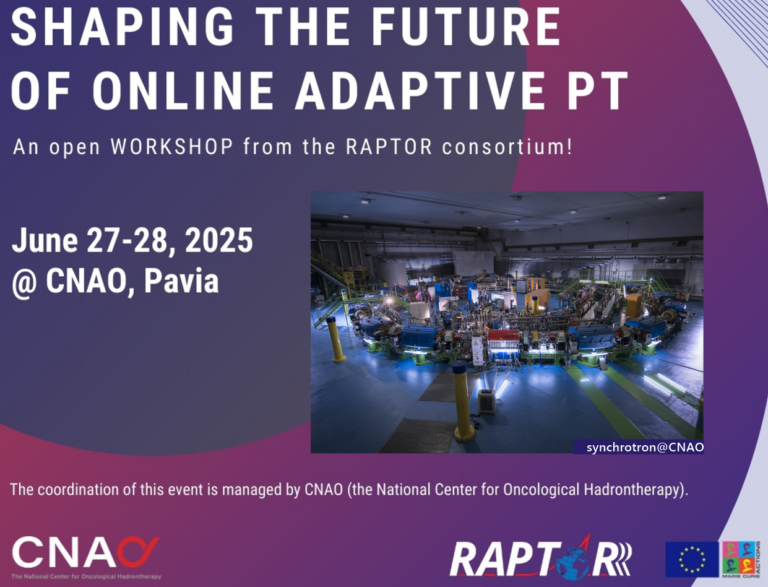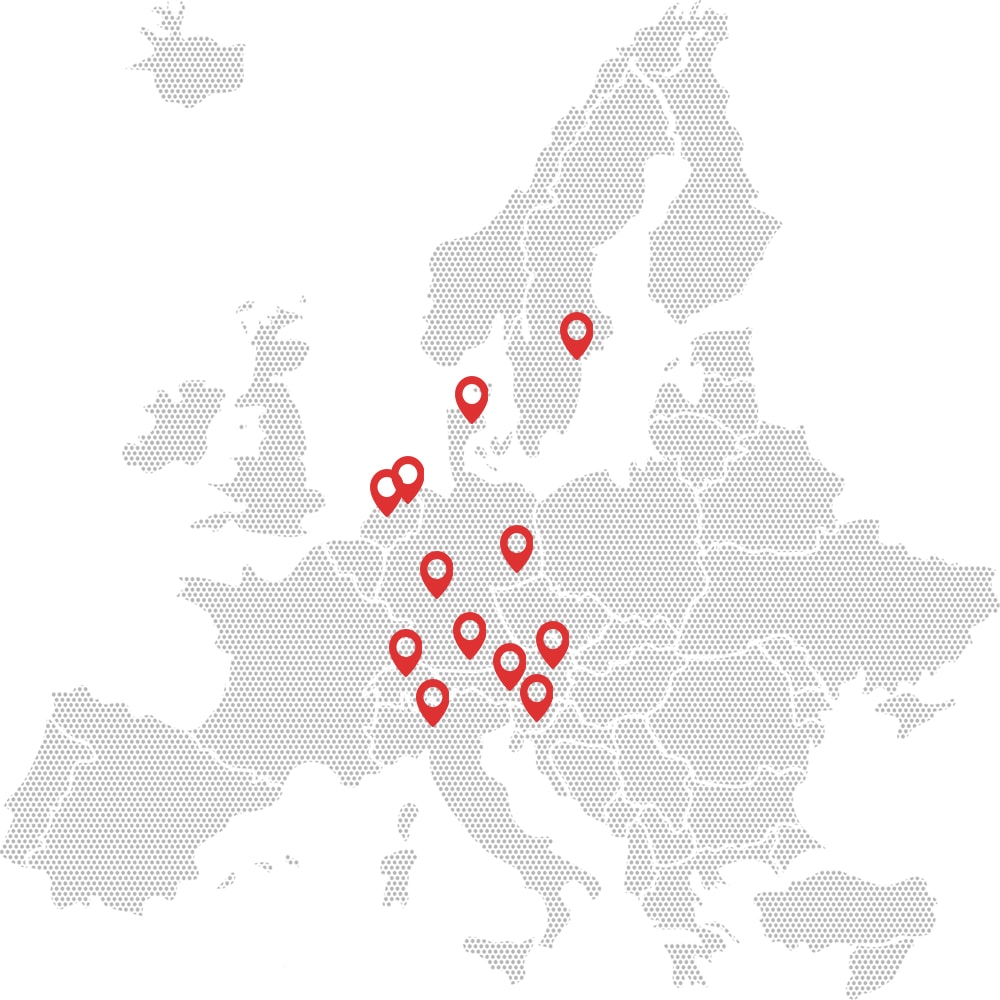Real-time Adaptive Particle Therapy of Cancer (RAPTOR)
RAPTOR brings together 13 Beneficiaries and 15 partner organizations with one aim in common: To bring adaptive particle therapy to the clinic.
Introduction
The high precision of particle therapy (PT) comes as a double-edged sword since PT is normally less robust than X-ray radiotherapy. Several uncertainties, such as changes in anatomy, positioning, organ delineation and systematic uncertainties can have a significant impact on where the final dose is delivered. The reliability of PT has increased in recent years with robust treatment planning, however, it still remains sensitive to larger uncertainties that have to be minimized to exploit the full benefit of PT.
The clinical workflow in PT has been adopted from conventional X-ray radiotherapy, where the treatment plan is based on the initial computed tomography (CT) scan of a patient. Since, the treatment usually lasts several weeks, it is likely that the initial treatment plan becomes less valid due to the changes of the patient anatomy as the treatment progresses.
We propose a shift in the paradigm
- Preparing a daily PT treatment plan for each patient, that is based on current patient images, would significantly increase treatment accuracy since most of the uncertainties would be minimized.
- The advantages of PT could be better utilized in an interventional capacity.
- Due to its flexibility and rapid adaptation, RAPTOR will enable treating patients in the sitting and standing positions, which will facilitate simpler, more compact, and less costly beamline designs.
- RAPTOR will therefore make the benefits of proton therapy available to many more patients.

Our research projects
News & Articles

Newsletter RAPTOR n*7, August 2025
Welcome to the seventh issue of the RAPTOR newsletter! As we approach the conclusion of the RAPTOR project, we are proud to share the Summer

Join the Advanced Medical Physics School 2025 at Lake Como – Apply by April 15!
Don’t Miss the Advanced Medical Physics School 2025! An exciting opportunity for medical physics professionals is coming your way! The Advanced Medical Physics School, organized

Registration Open for the Online Adaptive PT Workshop – June 27-28, 2025
We are excited to announce that registration is now open for the Online Adaptive PT Workshop on June 27–28, 2025, at CNAO, Pavia, Italy. This event

Newsletter RAPTOR n*7, August 2025
Welcome to the seventh issue of the RAPTOR newsletter! As we approach the conclusion of the RAPTOR project, we are proud to share the Summer

Join the Advanced Medical Physics School 2025 at Lake Como – Apply by April 15!
Don’t Miss the Advanced Medical Physics School 2025! An exciting opportunity for medical physics professionals is coming your way! The Advanced Medical Physics School, organized

Registration Open for the Online Adaptive PT Workshop – June 27-28, 2025
We are excited to announce that registration is now open for the Online Adaptive PT Workshop on June 27–28, 2025, at CNAO, Pavia, Italy. This event

????Two PhD Positions Available in OAPT Research
Two PhD positions available in OAPT research The RAPTOR network is excited to announce two open PhD positions in cutting-edge research related to OAPT (Online-Adaptive Proton
Member of RAPTOR Consortium
RAPTOR brings together 13 Beneficiaries and 15 partner organizations from all over Europe with one aim in common: To bring adaptive particle therapy to the clinic.


